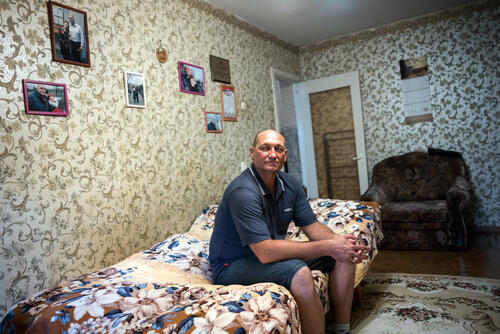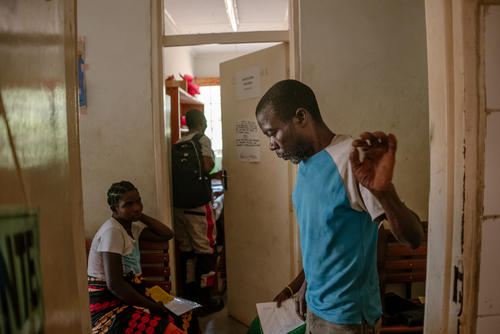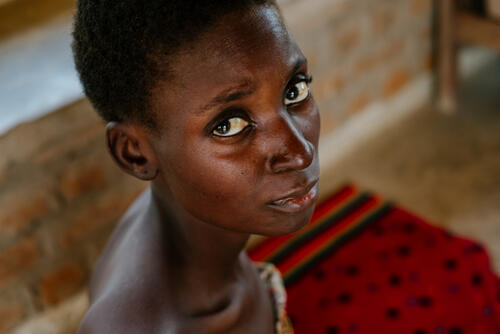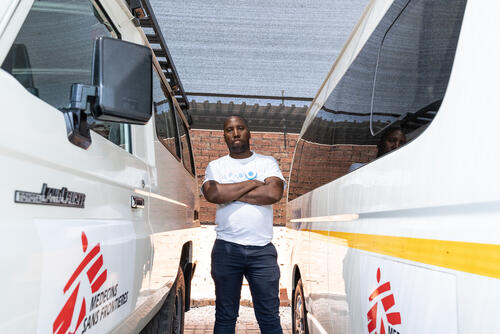Geneva - Médecins Sans Frontières (MSF) acknowledges the lower price offered to the government of South Africa for newer anti tuberculosis (TB) drug, delamanid, but calls for it to be significantly lower and expanded to all countries in need.
Mylan, which licenses the drug from the patent-holder Otsuka, will charge US$940Price includes charges for shipping, handling and insurance (15% approx.) but excludes Value Added Tax (VAT) (15%) for a six-month treatment course ($157 per month) as of 1 June 2020 in South Africa. Delamanid is used in combination with other drugs to treat people with drug-resistant TB (DR-TB), including the hard to treat extensively drug-resistant TB (XDR-TB)
As long as these new drugs are priced out of reach for TB programmes, an all-oral treatment regimen for people everywhere with pre-XDR and XDR-TB… will remain a distant reality.Dr Stobdan Kalon, MSF medical adviser, India
Delamanid is one of the most expensive drugs used to treat drug-resistant tuberculosis (DR-TB), priced at $1,700Ex works price: Price of the drug that does not include additional charges of loading, shipment, insurance, import duties etc. for a six-month treatment course ($283 a month) through the Global Drug Facility, a TB drug and diagnostic procurement mechanism operating out of a UN agency. It is just one of multiple drugs needed to treat the disease. Its high price is a key driver of the high overall cost of treating people with multidrug-resistant TB (MDR-TB) and XDR-TB. A full 20-month treatment course for one person can cost $8,000 to $12,000 through GDF, depending upon the length of treatment and the other drugs that make up the treatment regimen.
The high price has had a chilling effect on treatment scale-up: although delamanid was conditionally approved by the European Medicines Agency in April 2014, as of the end of August 2019, only 2,902 people have ever been treated with delamanid according to the DR-TB Scale-Up Treatment Action Team of global TB experts, which receives updates from National TB Programmes and large treatment providers, such as MSF.
Otsuka and Mylan must further drop the price of delamanid to ensure that TB programmes are able to afford and scale-up the use of all-oral treatment regimens.Dr Stobdan Kalon, MSF medical adviser, India
The World Health Organization’s (WHO) treatment guidelines prioritise the use of newer drugs as part of all-oral regimens for the treatment of MDR-TB and XDR-TB. MSF urges more countries to make the switch from older, toxic treatments that need to be injected to all-oral regimens that contain the newer drugs, including delamanid. These newer drugs are critical to improving the otherwise abysmal cure rates of 55% and 34% for MDR-TB and XDR-TB, respectively. Use of the newer TB drugs is also urgently needed for children with MDR-TB in order to improve treatment outcomes and reduce the risks of side effects.
However, the $940 price for delamanid offered by Mylan to South Africa remains too high. It is also not clear whether Mylan plans to offer this price to all countries. Countries facing high rates of resistance specially to fluoroquinoloneFluoroquinolones (FQ): A class of antibiotics that play an essential role in the treatment of DR-TB. High levels of resistance to fluoroquinolones in countries like India is a serious concern because it is associated with treatment failure and death for people with DR-TB who are resistant to this class of drugs. drugs, like India, should take effective measures including overriding patents through compulsory licenses so that generic manufacturers can enter the supply chain and bring the price down further. Researchers from the University of Liverpool have calculated that delamanid could be produced and sold at a profit for much less – ranging from $5-16 per month if the drug is scaled up by national TB programmes.
Dr Stobdan Kalon, MSF Medical Advisor, India said:
“We constantly struggle to successfully treat people with XDR-TB that have fluoroquinolone resistance and children with MDR-TB at our Mumbai clinic, which is a grave concern given the unacceptably high rates of treatment failure and death. In order to improve the chance for a cure, these patients need effective treatment regimens and immediate access to newer drugs, bedaquiline and delamanid.
“Even at $940, delamanid remains one of the most expensive DR-TB drugs, and its high price will continue to have a chilling effect on the scale-up of this drug in national TB programmes. As long as these new drugs are priced out of reach for TB programmes, an all-oral treatment regimen for people everywhere with pre-XDR and XDR-TB and children with MDR-TB will remain a distant reality and people will continue to suffer the devastating side effects of older drugs that have to be injected, including permanent deafness. Otsuka and Mylan must further drop the price of delamanid to ensure that TB programmes are able to afford and scale-up the use of all-oral treatment regimens.”






